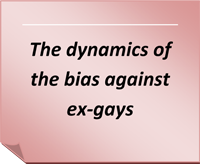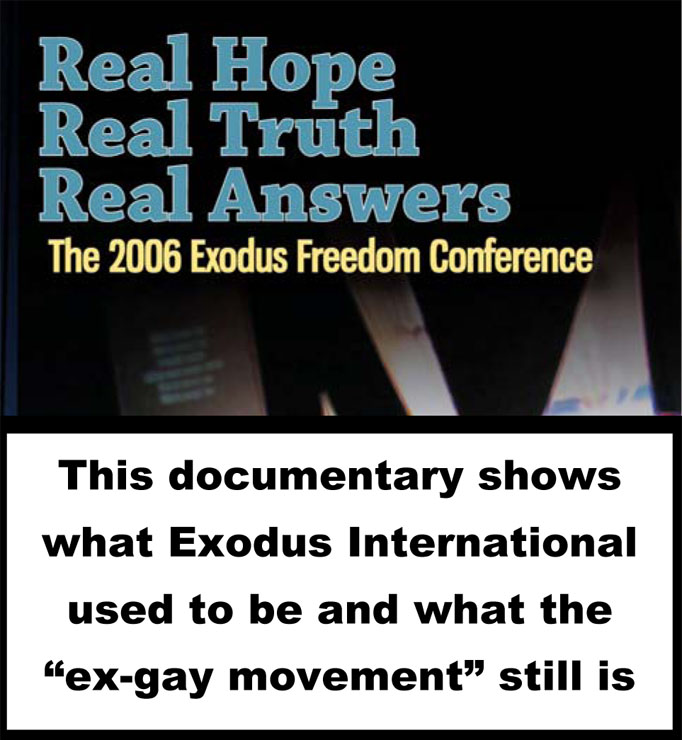Worldviews Introduction
By Thomas Coy
August 2008
Many of the great Christian thinkers of our age have argued the superiority of the Christian worldview over other worldviews. Which for the average person leads to the questions, what is a worldview and how does the Christian worldview differ from other worldviews? Since this is an introduction to worldviews and the concept of comparing belief systems, I will attempt to be as clear as possible and stick to basic principles. The concepts presented will summarize the reason and logic of Christian writers Ravi Zacharias, Charles Swindoll, Charles Colson, Nancy Pearcey, and D. James Kennedy.
Ravi Zacharias was asked in a Washington Times interview what he thought American culture needed rescuing from. Ravi replied that more than anything else America needed “to know she cannot exist without the worldview that helped bring her into being. And that was the Judeo-Christian worldview.” In the book “How Now Shall We Live?” Charles Colson and Nancy Pearcey make the statement that “at the birth of our nation, no one – not even deists and skeptics – doubted that basic biblical truths undergirded American institutions and informed the nation’s values.” As one examines the concept of worldviews it soon becomes apparent that worldviews are as important to society and an individual as a foundation is to a building.
German philosopher Immanuel Kant is credited with first using the term “Weltanschanuung” or worldview, “which means “a way of looking at the world.” Zacharias uses the definition “A worldview is a set of beliefs that underline and shape all human thought and action.” Colson and Pearcey define a worldview as “the sum total of our beliefs about the world, the “big picture” that directs our daily decisions and actions.” Charles Swindoll wrote that a worldview informs a person’s “beliefs, feelings, attitudes, and actions … on everything.” The late D. James Kennedy described a worldview as “a set of assumptions or presuppositions that determine the way we look at the world and our place in the world.” What seems obvious from these definitions is that worldview beliefs combine philosophy, knowledge, actions, and faith, and a person or society’s worldview can change.
As I compared what each of the five Christian authors saw as the basics of a worldview, I found that three intertwined belief philosophies were needed to complete ones worldview. The first belief philosophy incorporates “creation.” Where do we come from? Is there a God, gods, or is God an illusion made up by man? What is the basis of human value? What is the basis of authority? The second belief philosophy incorporates “morality.” What is the standard of right and wrong? How do I separate good from evil? What has gone wrong in the world? The third belief philosophy incorporates “destiny.” Does life have meaning? If life does have meaning, what is my life’s meaning? What is going to happen to me when I die? What can I do to help fix what is wrong in the world? Should I even try to fix what is wrong in the world? These are all questions that each person has to resolve or choose to ignore. They are some of the deep questions about life and, clearly, the questions involving morality and destiny depend heavily on the person’s belief philosophy regarding creation.
Where a philosophical study of ethics would lump beliefs systems in categories such as objective versus subjective (objective moral truth proponents believe that moral truth exists independently, while subjective moral truth proponents claim that moral truth varies with each individual’s perspectives), a study of worldviews would want to know more than what made the belief systems objective or subjective. Valuable insight is gained by revealing and studying the assumptions and presumptions behind the reasoning, starting with a person’s belief or non-belief in God.
For example, Immanuel Kant is considered a great moral philosopher of the eighteenth century. Kant believed that with the advances in science, reason could figure out morality without the input of religion. He postulated by his reasoning that kings and peasants were bound by the same moral code. Kant was able to build a moral philosophy based on motive and duty. Kant’s philosophies are categorized as an objective moral belief system, because he believed that the moral truth he rationalized existed outside his reasoning, but his moral philosophy was also subjective in the sense that each individual’s motives and duty could vary. A question of real significance is what assumptions did Immanuel Kant start with. It is a great insight for anyone studying Kant to know that he had a core agnostic belief. He believed that whether God existed or didn’t exist was irrelevant to morality, because Kant believed humans could not know anything reliable about God if he did exist. When comparing Kant’s moral philosophy to his agnostic belief, it is self-evident that his moral philosophy is substantially built upon his agnostic belief. His agnostic belief did not come from his moral philosophy.
There are many different worldviews for a person to choose from. In a similar way, there are many different worldviews for a society to base its moral code and civil laws on. Colson and Pearcey see the battle of worldviews in America mainly between the Christian theistic worldview and naturalist worldviews. Not that there isn’t conflict and substantial differences between other theistic worldviews like the Islamic worldview. What Colson, Pearcey, and other Christian leaders have observed is that America has shifted its worldview as a society from the Christian worldview to a naturalist worldview. American culture, especially academia, has rejected the authority of the Judeo/Christian God for a relativist philosophy that views “all viewpoints, all lifestyles, all beliefs and behaviors … as equally valid.”
The Christian worldview begins with the presumption that an all powerful perfect and pure Creator created humans in his own image and gave them free will. The Christian worldview differs distinctly from other theistic worldviews foremost in its concept of a triune God; one God that manifests himself in three dimensions. Much like the concept of how time exists in the future, the present, and the past, Christians see one deity existing as the Father, Son, and Holy Spirit. Just as the future is revealed to humans in the present and the past, the Father is revealed to humans through the Son and Holy Spirit. Through the Holy Spirit and the Son, the Father has revealed his will to Moses and other Old Testament patriarchs culminating in the appearance of Jesus on earth. Hence the blunt revelations Jesus gave his disciples, “Anyone who has seen me has seen the Father” (John 14:9 NIV), “the Son can do nothing by himself; he can do only what he sees his Father doing” (John 5:19 NIV), and “whatever I say is just what the Father has told me to say” (John 12:50 NIV). The value of human life and the human spirit is of extreme value in the Christian worldview, because God created humans in his own image and was willing to suffer to reconcile mankind to Himself. Emerging from this worldview creation belief is a picture of a loving, caring, and just God. Ultimate authority in the Christian worldview comes from the triune God, and the humans who end up in positions of authority on earth are supposed to follow biblical guidelines of behavior. It is easy to see from the creation belief of the Christian worldview that the Bible is also the foundational source of the morality and destiny beliefs of that worldview. Destiny in the Christian worldview is eternal and actions on earth can have eternal consequences. This creates a strong incentive for individuals to abide by the Christian morality belief; an incentive that reaches beyond civil law. The morality belief promotes “love, joy, peace, patience, kindness, goodness, faithfulness, gentleness and self-control,” while condemning “sexual immorality, impurity and debauchery; idolatry and witchcraft; hatred, discord, jealousy, fits of rage, selfish ambition, dissentions, factions and envy; drunkenness, orgies, and the like.” (Galatians 5:21-23 NIV)
Naturalist worldviews begin with the presumptions “that nature is all that exists, that life arose from chance collision of atoms, evolving eventually into human life as we know it today.” From this creation base the value of humanity can go in either direction. Human life can be reasoned to be valuable or it can be reasoned to be valueless. Morality can be reasoned in either direction also. Aberrant sexual behavior and greed can be reasoned to be either destructive or a form of enlightenment. The same extremes can be reasoned for the basis of authority. People like Mao Zedong and Hitler can reason that authority stems from the barrel of a gun, communists can create an organization and claim authority stems from the created political party, or democracy inspired people can reason that authority stems from the majority of a society. All these extremes can be rationalized from the naturalist creation belief. A naturalist creation presumption can even be spiritual in the sense that nature is god, like the Hindu religions belief in oneness with the universe. The naturalist creation belief is also foundational to the type of spirituality that claims humans are gods. It is obvious that the naturalist creation belief will lead to many different worldviews with many extremes in morality and destiny. Some of the many naturalist based worldviews include secularism, secular humanism, atheism, agnosticism, Darwinism, existentialism, monism, moral relativism, Multiculturalism, pragmatism, utopianism, Nazism, communism, and postmodern spirituality.
D. James Kennedy made the argument that “every worldview is based on faith.” That statement surely is denied by those with naturalist worldviews claiming science as their ultimate source of truth. But Kennedy is right. Christians have evidence that Jesus was sent from God, but they cannot explicitly prove that God exists. Darwinists have evidence of evolutionary changes within species and lack evidence of evolutionary change from one species to another higher species. Darwinists and atheists can not explicitly prove that God does not exist and was active in creating life. Darwinists have to base their worldview on the faith that God does not exist and life rose out of nothing. Even the agnostic has to have faith that God cannot communicate with mankind in order to have faith in his own reasoning over religious teaching. In this sense every worldview belief with respect to creation, morality, and destiny are founded on some basic faith.
In America all the naturalist worldviews have one common enemy – the Christian worldview. The Christian worldview is no longer the dominate worldview in America, arguably because academia excludes it or misrepresents it. Colson and Pearcey write that America’s postmodern worldview regards all viewpoints, lifestyles, behaviors and beliefs as equally valid. “Institutions of higher learning have embraced this philosophy so aggressively that they have adopted campus codes enforcing political correctness. Tolerance has become so important that no exception is tolerated.” Zacharias told the reporter from the Washington Times, “What America also needs is the willingness to allow the Christian faith freedom of access in the institutions that it allows every other faith to have.” That is a strong indictment on the educational system in the United States from an articulate scholar who is “totally convinced the Christian faith is the most coherent worldview around.”
As the concept of worldviews is understood it becomes strikingly apparent, in my opinion, that the reason academia clings to the theory of evolution, despite the lack of evidence of natural selection in macro evolution and the mounting evidence that suggests its impossibility, is because it is the core creation belief of its naturalist worldview. By falsely claiming macro evolution as a fact it has been able to reject the Christian worldview that America once adhered to. In a classroom debate with one of my professors on the possibility of intelligent design in creation, the professor told me that virtually all academic scholars agreed that Darwinian evolution was a fact. I wish this website was available at that time http://www.dissentfromdarwin.org. The website contains a list of hundreds of academic scholars who “are skeptical of claims for the ability of random mutation and natural selection to account for the complexity of life.” Academic institutions have not yet had to face the reality that the naturalist worldview they promote are not based on science at all. It is a reality they do not want to address, because it requires the return of the Christian worldview into the classroom.
This is a good place to end this introduction to worldviews. As you can see the battle of worldviews operates in two spheres. It is an internal conflict as each person either adopts or seeks out a belief system to live their lives by, and it is a cultural battle as proponents of different worldviews seek to establish their worldview as the basis for cultural morality and civil law. America’s culture war is a battle of worldviews and it is being fought in the media, inside corporations, in the school systems, in the churches, and in all the branches of government.
Copyright 2008




